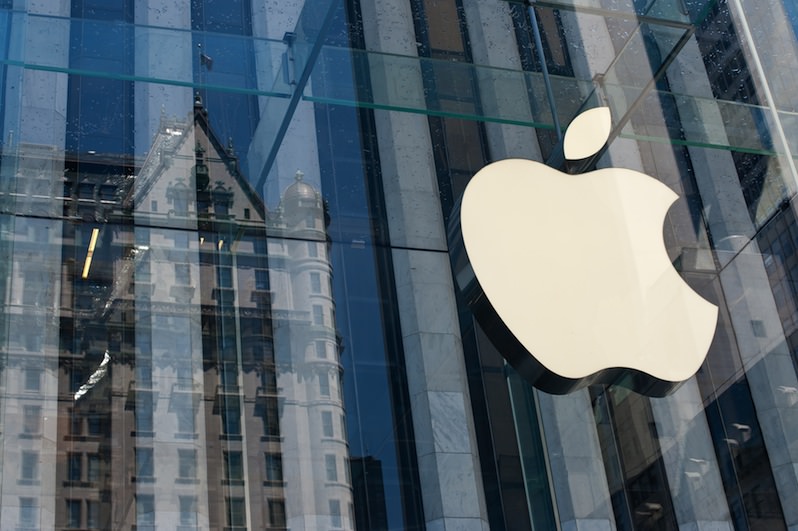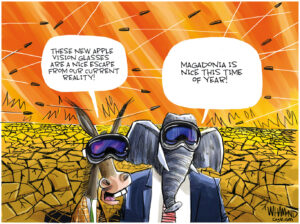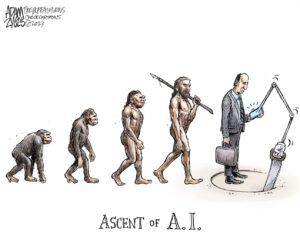Can Apple, Google and Facebook Save Us From Big Brother?
The big tech companies have the resources to launch a campaign for privacy that could change the world. As one scholar and researcher has written, “They may be our best chance out of this surveillance mess.” Shutterstock
Shutterstock
Shutterstock
Apple has been battling the Department of Justice and the intelligence community for years now, as was amply illustrated recently. The DOJ obtained a court order to force the company to provide it with the texts of two criminal suspects, but Apple responded by saying the messages are automatically encrypted and it cannot access them.
The DOJ is not happy about this. FBI Director James Comey has often stated that message encryption helps terrorists and kidnappers stay undetected, despite the fact that no evidence of this has been provided.
Ryan Calo, an assistant professor at the University of Washington School of Law, published a piece on Fusion on Monday that explains part of his longer thesis on surveillance. He believes tech companies are playing—and could continue to play—a major role in ensuring the privacy of Americans and protecting them from unnecessary surveillance efforts. “Keep on top of Apple, Google, Microsoft. Follow what they do and don’t let them let up,” he writes. “They may be our best chance out of this surveillance mess.”
Calo—who also is an affiliate scholar at the Stanford Law School Center for Internet and Society and at Yale Law School Information Society Project—told Truthdig that companies can not only protect the privacy of their users by ensuring that communications are encrypted, they can also resist excessive data requests, as Microsoft did last year, educate customers about how to protect their privacy and fight court battles over government policies that affect their customers. “Corporations have much more access to resources to fight out court battles,” Calo said. “They have better lawyers than you or me.” He acknowledges that companies like Google and Facebook profit from user data for advertising purposes, but he sees hope in how they could handle privacy when it comes to government surveillance.
There is only so much that ordinary citizens can do to protect themselves. They can vote for politicians who promise to protect privacy, they can support companies that protect users and they can try to find their own ways of protecting their data (as someone who had to teach himself how to encrypt emails, I know it can be arduous and complicated). But a company as large as Apple, Google or Facebook could launch a campaign for privacy that could change the world.
“Obviously, we follow the law like any other company,” a Google representative told Truthdig. “When we receive a subpoena or court order, we check to see if it meets both the letter and the spirit of the law before complying. And if it doesn’t, we can object or ask that the request is narrowed. We have a track record of advocating on behalf of our users.”
Google has three out of five stars on the Electronic Frontier Foundation’s “Who has your back?” chart, which tracks companies efforts to protect privacy. It follows best practices for privacy, discloses government content removal requests and opposes giving the government a back door to encryption. That said, it is known for having inadvertently allowed masses of user data to be stolen by Chinese hackers by equipping Gmail, with a backdoor access system in order to comply with government search warrants on user data.
Apple and Twitter did not comment on their policies, and Facebook did not respond to a request for comment, but there is evidence of how Apple approaches the surveillance issue.“Government information requests are a consequence of doing business in the digital age,” says a statement on the company’s government information requests page. “We believe in being as transparent as the law allows about what information is requested from us. In addition, Apple has never worked with any government agency from any country to create a ‘back door’ in any of our products or services. We have also never allowed any government access to our servers. And we never will.” Apple has consistently stood by this—as far as we can tell, although as Calo points out, agreements can be made between companies and the government behind closed doors that we never hear about.
One interesting thing about Twitter—unlike Apple, Facebook, Yahoo and Microsoft—is that it doesn’t appear in Edward Snowden’s leaked PRISM slides. These slides showed which companies cooperated with the government in providing Internet communications for surveillance. Twitter has also been known to fight in court for increased transparency in the surveillance world, despite sometimes lacking transparency itself.
For some companies, the Snowden data hurt bottom lines as well as public opinion. “The Snowden revelations caused a lot of international businesses to shy away from U.S. cloud services, and they lost a hefty percentage of their business,” Calo said. “In order to show they can be a provider, they need to fight it out in court, and they need to fight it out in public opinion and they need to take technological steps [to protect user data].”
Nate Cardozo, a staff attorney at the Electronic Frontier Foundation, told Truthdig the policies of these companies ripple worldwide, because people across the world use their products. “There are tons of different reasons for why you’d want to use encryption to keep your activities from the government,” he said. He pointed out that someone working for the Red Cross in Syria or an LGBT activist in Saudi Arabia has very good reasons for wanting their data protected—their lives may depend on it.
Cardozo recognizes that encryption will be normalized if everyone does it. In the past, encrypting data might have been seen as a sign to law enforcement that the encrypter had something to hide, but if everything’s encrypted, nothing sticks out. For Cardozo, the greater good is at stake in such a scenario.“Privacy is a prerequisite for democracy and social change, and encryption is, at this point, essential for privacy,” he said.
“Every company, in this day and age, is responsible for its users’ privacy and is responsible for designing its products in a way that maximizes its users’ privacy,” Cardozo said. With the government constantly asking for more access to citizens’ information and with little evidence that having that information actually protects anyone, companies with power that is not exclusively political need to step up and take action.
Your support matters…Independent journalism is under threat and overshadowed by heavily funded mainstream media.
You can help level the playing field. Become a member.
Your tax-deductible contribution keeps us digging beneath the headlines to give you thought-provoking, investigative reporting and analysis that unearths what's really happening- without compromise.
Give today to support our courageous, independent journalists.






You need to be a supporter to comment.
There are currently no responses to this article.
Be the first to respond.